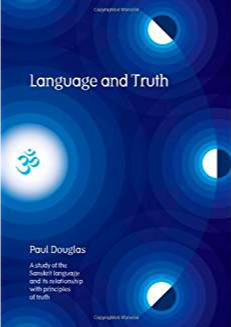Q: Is Isvara/maya the one responsible for the form of the universe or is the jiva responsible for it?
If Isvara/maya:
- then who/what is Isvara and how does it create the universe?
- then how does Adhyasa come into the picture because if Isvara is the creator then even if adhyasa is removed then the appearance of the world will still be there.
If the jiva
- then why does the world not disappear upon enlightenment (a jiva is responsible for the dream at night whilst asleep, therefore the dream disappears upon waking)
I have heard many examples of gold/ornament with regards to the universe and Brahman (Gold being brahman, the names/forms being the ornaments). I’m not sure I have fully grasped this comparison. In what sense does matter depend on Brahman?
I see that all things are experienced IN consciousness and therefore in that sense the world of objects/atoms/quantum fields etc. depends on consciousness/Brahman because the world can not be experienced without consciousness. It doesn’t seem right to me, because it’s not something you could ever refute. Obviously we can’t experience the world without consciousness.
A: The answer to your questions is really ‘it depends’. It depends upon which theory you are ‘using’/accepting.
The ‘simple’, traditional response is that Ishvara creates the world and there are detailed ‘explanations’ as to how this is done in several Upanishads (which do not always agree in the finer detail). To any modern, scientific mind, these explanations are not convincing (to put it politely). And you are right – when adhyAsa is removed for the jIva, the world is still there. Ishvara is both the material and efficient cause – matter IS Ishvara’s own substance, in the analogous way to the web being the spider’s own substance. This is the sRRiShTi-dRRiShTi-vAda theory – the world is created and we then see it.
There is what is believed by its adherents to be a more sophisticated theory, which is that the jIva sees the ‘form’ of brahman and effectively creates the universe out of it. You can appreciate this in the vAchArambhaNa sutras in Chandogya Upanishad. We impose forms on the non-dual substrate and give them names, thereby bringing about an apparent duality. This is the dRRiShTi-sRRiShTi-vAda theory – you see and then create your universe.
Of course, if you think about this second theory, you realize that these forms that you create have to include ‘other jIva-s’ and your own body-mind. This is equivalent to solipsism and is called the eka-jIva-vAda theory – ‘one-jIva’. It is effectively the same as DSV. And, again you are right – upon enlightenment (when ‘I’ am enlightened), the world will disappear.
Personally, I prefer to go straight to ajAti-vAda – there has never been any creation at all. There is only ever the non-dual brahman.
There is much written on all of this. As you appreciate, it is a complex topic. Have you read my last book, ‘A-U-M’? Gaudapada went straight to the heart of the matter and my book tries to cover all that he and Shankara said in their commentaries on the Mandukya Upanishad.
Have a look at Q.103 and http://www.advaita.org.uk/discourses/teachers/theories_vidyasankar.htm.

